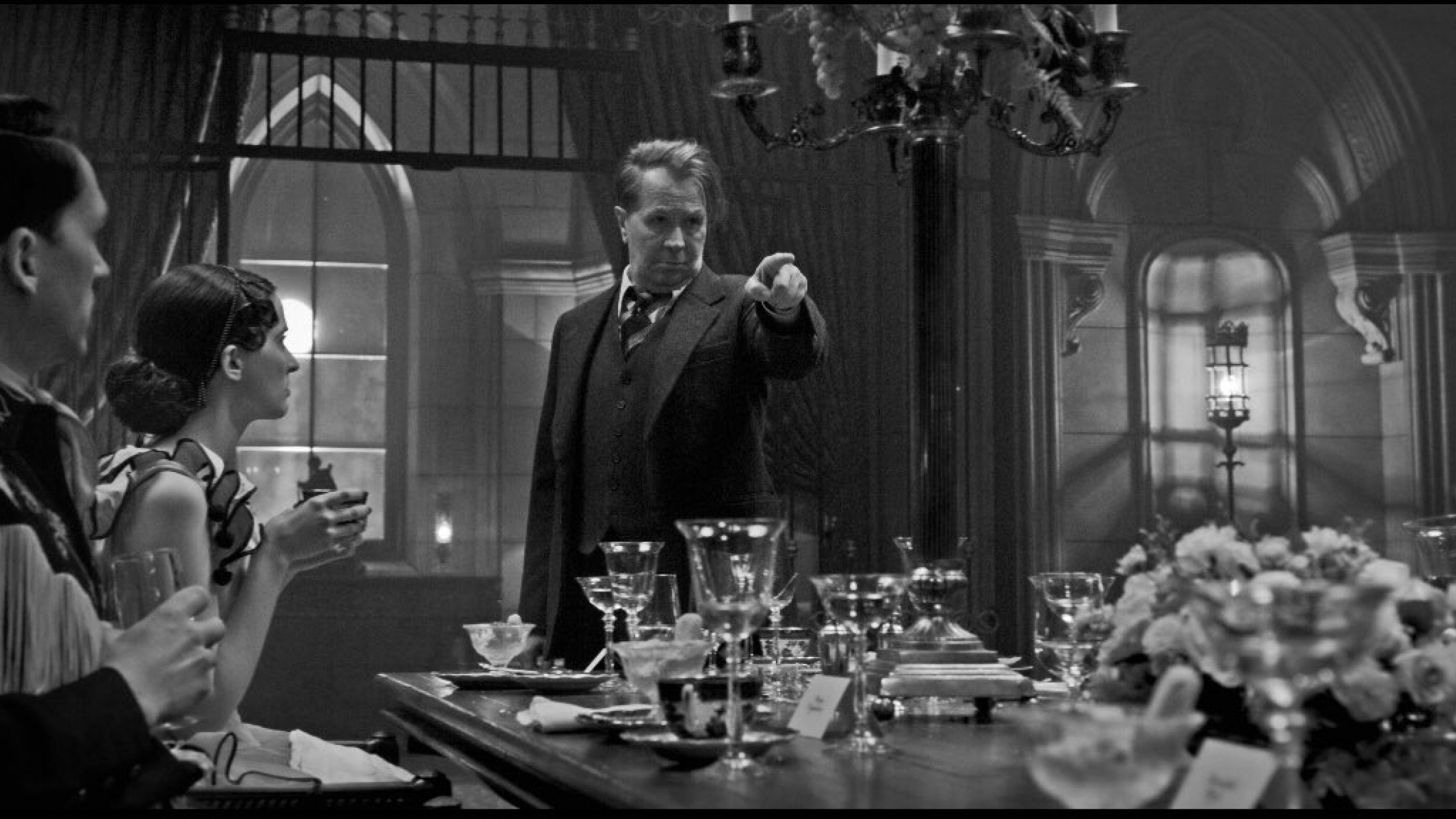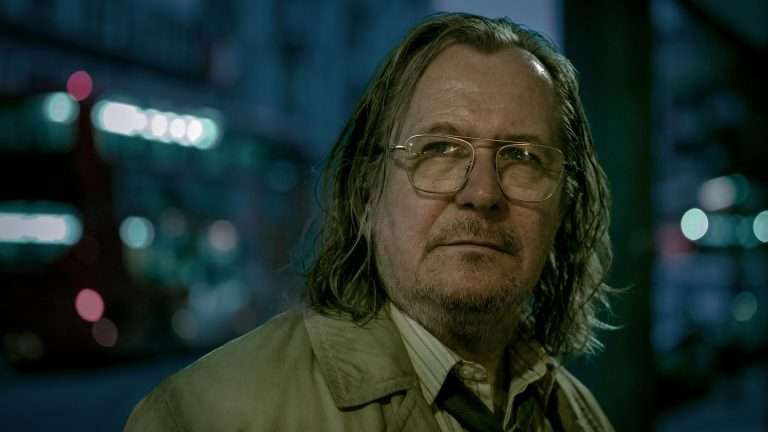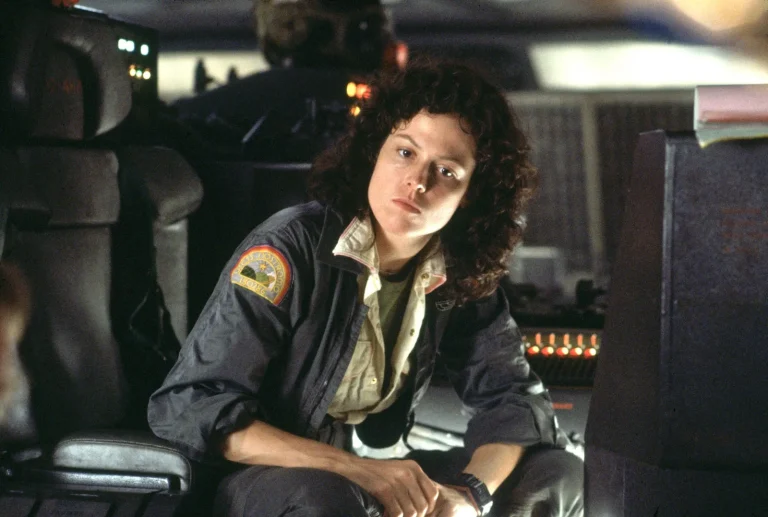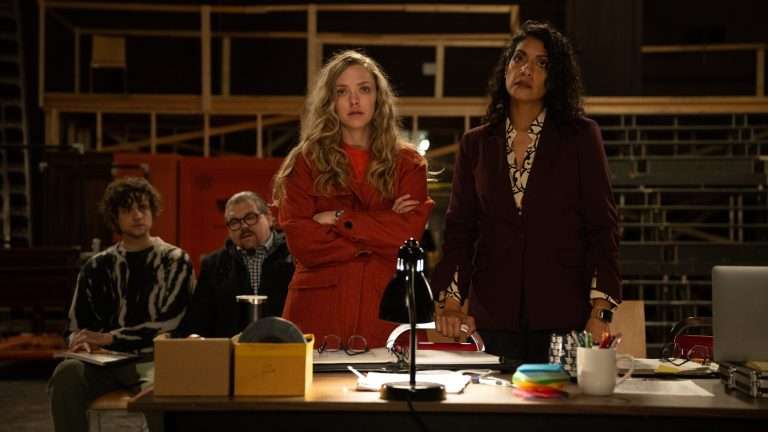10 Things You Probably Didn’t Know About Mank (2020) “Mank” premiered on Netflix in December 2020 and checked off all the boxes for a must-see for any film buff. Depicting the making of an American biographical drama film about screenwriter Herman J. Mankiewicz and his development of the script for Citizen Kane (1941), the film boasted an all-star cast and an amazing director.
Without further ado, here’s some of the interesting trivia on one of the most important movies of 202o, “Mank” (Streaming on Netflix).
1) 24-Years Of Sobriety
Gary Oldman was coming up 24 years sober when he was cast to play the notorious alcoholic screenwriter Herman J. Mankiewicz in David Fincher’s biopic “Mank.” In the ’30s, people who drank too much did not have the resources for recovery that exist today. “‘Drink responsibly,’ what do they say in this day and age?” said Oldman. “Now we have Alcoholics Anonymous. It’s a legitimate movement.”
2) Finding The Frequency
The first time Gary Oldman and David Fincher met was in London 1990, when Fincher was looking to cast him in “Alien 3.” “And he had the sense to say no,” Fincher recalls. In the 30 years since then, they have never been far out of orbit from one another. They consider one another friends but this is the first time they have worked on a film together.
3) Initial Cast
“Mank” was originally going to be Fincher’s follow-up to The Game (1997) with Kevin Spacey and Jodie Foster set to star but never came to fruition due to Fincher’s insistence on shooting in black-and-white. “Let’s be real: The exhibition experience is not the shining link in the chain right now,” Fincher states.
Related Read to Mank: Every David Fincher Film Ranked
4) Use of Prosthetics
David Fincher wanted Gary Oldman to play the role without any prosthetics, unlike his Oscar-winning Winston Churchill portrayal in Darkest Hour (2017). “David wanted no veil and no stuff between the audience and the performance,” Oldman said. “It wasn’t really David, it’s my baggage, my anxiety. I thought I was pretty naked up there. ‘Exactly,’ he said. ‘That’s what I want. No schtick. No stuff. I want you to be as naked as you’ve ever been.’
5) Gary Oldman, the Right Choice?
Oldman, 62, was a little old to play Herman Mankiewicz — he wrote “Citizen Kane” more than a decade before drinking himself to death at the age of 55 — Oldman is so tailored to the role that he wears it like the cocktail-soaked, day-old, rumpled suit Mank flops around in.

6) Countless Exhaustive Retakes
In his portrayal of Herman J. Mankiewicz, Gary Oldman never minded director David Fincher’s endless takes: “I’m there to serve the director.” Charles Dance stated that a scene involving a drunken Mankiewicz took over 100 takes, while Amanda Seyfried stated that one of her scenes took over a week and 200 takes to shoot.
7) Delays In Production
David Fincher couldn’t get “Mank” going for 25 years because “no one wanted to do it in black and white,” said Gary Oldman. Here’s what Fincher said, “Yes, it’s an exclusivity deal with Netflix for another four years”. Fincher continued by jokingly saying, “Depending on ‘Mank’s’ reception, I’ll either go see them sheepishly asking them what I can do to redeem myself or take the attitude of the arrogant a**hole who’ll require making other films in black and white”.
8) Intertwined Personal Life
David Fincher and Gary Oldman were both married to Donya Fiorentino. Fincher was married to Fiorentino from 1990 to 1995, while Oldman was married to Fiorentino from 1997 to 2001. Both marriages reportedly ended in disaster. It is rumored that Fincher’s and Oldman’s troubled experiences with Fiorentino became a strong inspiration for Fincher’s directing “Gone Girl (2014).”
9) Anti-Welles Initial Drafts
The initial 120-page draft written by late Jack Fincher, based on a 1971 New Yorker article “Raising Kane” claim, revealed that Welles did not deserve screenwriting credit. Eric Roth reportedly polished the script prior to filming with David Fincher saying he felt the initial drafts were too Anti-Welles
.
10) Controversy Surrounding Authorship
Fincher stated that he did not make the movie with the aim to settle the issue surrounding authorship: “It was not my interest to make a movie about a posthumous credit arbitration. I was interested in making a movie about a man who agreed not to take any credit. And who then changed his mind.”

![Darkest Hour [2017] – A Decent Historical Drama Powered by First-Rate Cast](https://79468c92.delivery.rocketcdn.me/wp-content/uploads/2018/02/cover2-768x512.jpg)



![Gone Girl [2014] Review: Our Quiet Secret](https://79468c92.delivery.rocketcdn.me/wp-content/uploads/2019/07/Gone-Girl-Rosamund-Pike-1-768x320.jpg)
